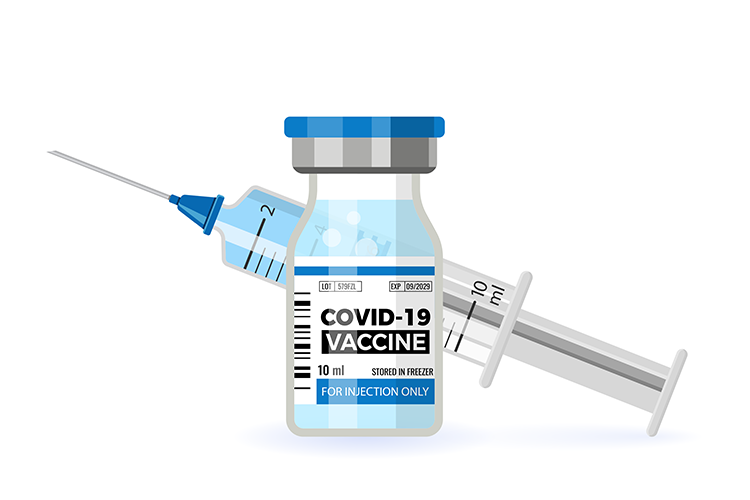Supreme Court doesn't interfere with New York COVID-19 vaccine mandate, despite lack of religious exemption

Image from Shutterstock.
The U.S. Supreme Court on Monday declined to block a COVID-19 vaccine mandate for health care workers in New York, even though the mandate does not include an exemption for those with religious objections.
The court refused to block the mandate in a Dec. 13 order. The New York Times and the Washington Post are among publications with coverage.
Justices Neil M. Gorsuch, Samuel A. Alito Jr. and Clarence Thomas would have granted an injunction to block the vaccine mandate, according to the Dec. 13 order. In a dissent joined by Alito, Gorsuch said those seeking an injunction were likely to succeed on their First Amendment claim.
“The free exercise clause protects not only the right to hold unpopular religious beliefs inwardly and secretly,” Gorsuch wrote. “It protects the right to live out those beliefs publicly in ‘the performance of (or abstention from) physical acts,’” he said, quoting from a 1990 decision.
Gorsuch said New York had at first included a religious exemption but changed course after Gov. Kathy Hochul took office in August.
Hochul had explained to reporters that the state rejected the exemption because there is no “sanctioned religious exemption from any organized religion.” She also said “everybody from the Pope on down is encouraging people to get vaccinated.”
Gorsuch said the free exercise clause does not permit government to presuppose the illegitimacy of religious beliefs and practices.
“This record gives rise to more than a ‘slight suspicion’ that New York acted out of ‘animosity [toward] or distrust of’ unorthodox religious beliefs and practices,” Gorsuch said.
Gorsuch said he hoped that the court’s refusal to block the mandate “will not be the final chapter in this grim story.” He cited a 1940 Supreme Court decision, later overruled, against schoolchildren who refused to stand and salute the American flag because of their Jehovah’s Witness beliefs. The requirement had been adopted “in the shadow of a looming second world war,” Gorsuch said.
“Today, our nation faces not a world war but a pandemic,” Gorsuch wrote. “Like wars, though, pandemics often produce demanding new social rules aimed at protecting collective interests—and with those rules can come fear and anger at individuals unable to conform for religious reasons.”
Cases such as that of the Jehovah’s Witnesses “remind us that, in the end, it is always the failure to defend the Constitution’s promises that leads to this court’s greatest regrets,” Gorsuch said.
Gorsuch said a state might be able to prevail, however, if it could prove that granting or denying a religious exemption would make the difference between achieving a crucial vaccination threshold needed to protect against an undue number of breakout cases. But New York “does not even seek to advance an argument along these or any similar lines,” he said.
Gorsuch filed his dissent in Dr. A v. Hochul.
See also:
ABAJournal.com: “Supreme Court allows vaccine mandate for health workers that didn’t offer religious exemption”
ABAJournal.com: “Do worker COVID-19 vaccine mandates have to offer religious exemptions? Courts differ; Breyer declines to act”



